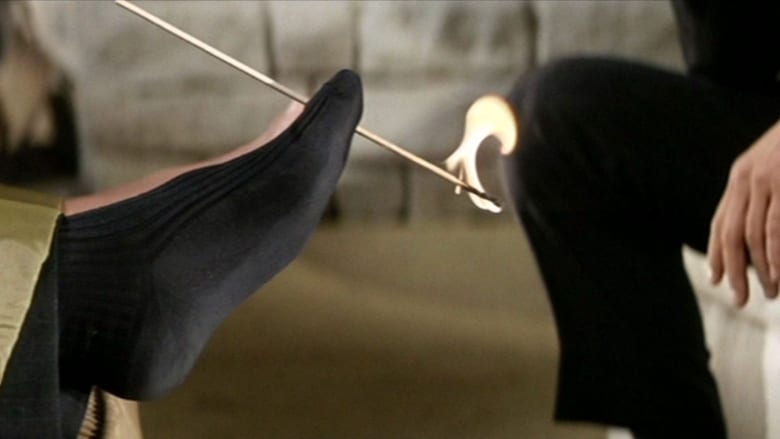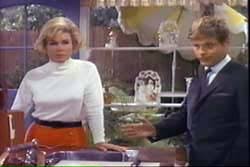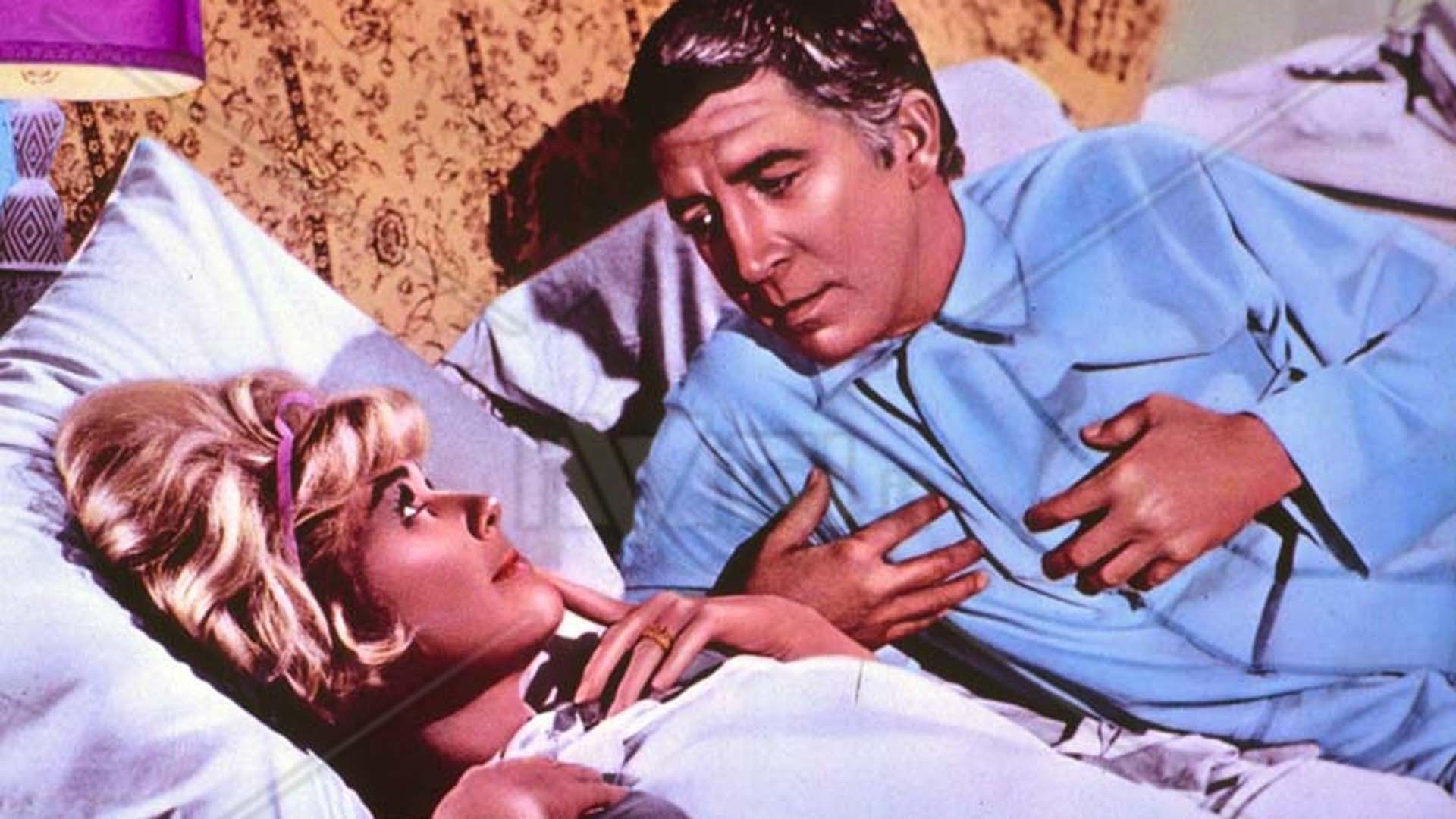← Back to Reviews

in
Where Were You When the Lights Went Out?
Doris Day was one of the biggest box office attractions of the 1950's, but her star began a serious decline in the 1960's thanks to some really inferior films like the 1968 alleged comedy Where Were You When the Lights Went Out?, a dreadfully unfunny film that has a fictional story centered around a non-fictional event.

Back in 1965, New York City suffered a blackout at exactly 5:27 PM that lasted approximately 12 hours. In this film, hours before the blackout, we meet Maggie Garrison (Day), a Broadway actress who catches her philandering husband, Peter (Patrick O'Neal) in a compromising position with a reporter with whom she had just done an interview. A furious Maggie fights her way through the blackout and manages to travel to her country home in Connecticut. She takes some sleep medication and passes out while Peter is enroute to the house to explain his behavior.

Meanwhile, a hotshot young executive named Waldo Zane (Robert Morse) has just been passed over for a promotion and retaliates by embezzling two million dollars from the company. He buys a car from a stranded motorist for $2200 and heads for Boston, but the car breaks down in front of Maggie's house and also takes the same medication that finds Waldo and Maggie passed out together on the same sofa.

It's mind blowing that it actually took three writers to come up with this juvenile screenplay where a fictional story is set against non-fictional events, almost always disastrous for a film. Logic and continuity just go out the window in favor of this slightly smarmy story that attempts to capitalize Day's screen persona...the play that Maggie is appearing in is called THE CONSTANT VIRGIN and the script even borrows Oscar Levant's famous line about knowing Doris before she was a virgin.

There's so much stuff that probably went unnoticed in 1968 that looks pretty stupid today. It's hard to believe that both Maggie and Waldo would fall asleep on the same sofa, falling all over each other and never realize they were sharing a sofa. The only laugh out loud moment for me was when we saw thousands of stranded commuters in Grand Central Station all holding lit candles and the minute the lights come back on, all of the candles have conveniently vanished.

Doris tries hard to make this story work, but she's really miscast here, doing a lot of silly slapstick that was more suited to Lucille Ball. It's no surprise that Day would only appear in one more film after this one before forsaking Hollywood until her death in 2019. Robert Morse is a lot of fun as Waldo, a darker variation on J Pierpont Finch. Terry-Thomas struggles with a thankless role as Maggie's director, who is allegedly Russian but the actor speaks with the same British accent he always did. Even hardcore Day fans will find getting through this a struggle, despite the very economic running time.
Doris Day was one of the biggest box office attractions of the 1950's, but her star began a serious decline in the 1960's thanks to some really inferior films like the 1968 alleged comedy Where Were You When the Lights Went Out?, a dreadfully unfunny film that has a fictional story centered around a non-fictional event.

Back in 1965, New York City suffered a blackout at exactly 5:27 PM that lasted approximately 12 hours. In this film, hours before the blackout, we meet Maggie Garrison (Day), a Broadway actress who catches her philandering husband, Peter (Patrick O'Neal) in a compromising position with a reporter with whom she had just done an interview. A furious Maggie fights her way through the blackout and manages to travel to her country home in Connecticut. She takes some sleep medication and passes out while Peter is enroute to the house to explain his behavior.

Meanwhile, a hotshot young executive named Waldo Zane (Robert Morse) has just been passed over for a promotion and retaliates by embezzling two million dollars from the company. He buys a car from a stranded motorist for $2200 and heads for Boston, but the car breaks down in front of Maggie's house and also takes the same medication that finds Waldo and Maggie passed out together on the same sofa.
It's mind blowing that it actually took three writers to come up with this juvenile screenplay where a fictional story is set against non-fictional events, almost always disastrous for a film. Logic and continuity just go out the window in favor of this slightly smarmy story that attempts to capitalize Day's screen persona...the play that Maggie is appearing in is called THE CONSTANT VIRGIN and the script even borrows Oscar Levant's famous line about knowing Doris before she was a virgin.

There's so much stuff that probably went unnoticed in 1968 that looks pretty stupid today. It's hard to believe that both Maggie and Waldo would fall asleep on the same sofa, falling all over each other and never realize they were sharing a sofa. The only laugh out loud moment for me was when we saw thousands of stranded commuters in Grand Central Station all holding lit candles and the minute the lights come back on, all of the candles have conveniently vanished.

Doris tries hard to make this story work, but she's really miscast here, doing a lot of silly slapstick that was more suited to Lucille Ball. It's no surprise that Day would only appear in one more film after this one before forsaking Hollywood until her death in 2019. Robert Morse is a lot of fun as Waldo, a darker variation on J Pierpont Finch. Terry-Thomas struggles with a thankless role as Maggie's director, who is allegedly Russian but the actor speaks with the same British accent he always did. Even hardcore Day fans will find getting through this a struggle, despite the very economic running time.
